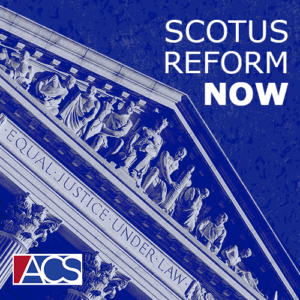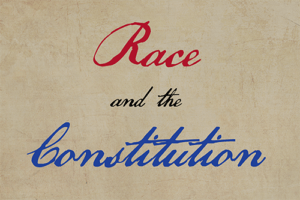We've Come a Long Way
Founded on the principle that the law should be a force to improve the lives of all people, ACS is the progressive response to the Supreme Court's Bush v. Gore decision. ACS's network today has grown to include 250 student and lawyer chapters in almost every state and on most law school campuses.
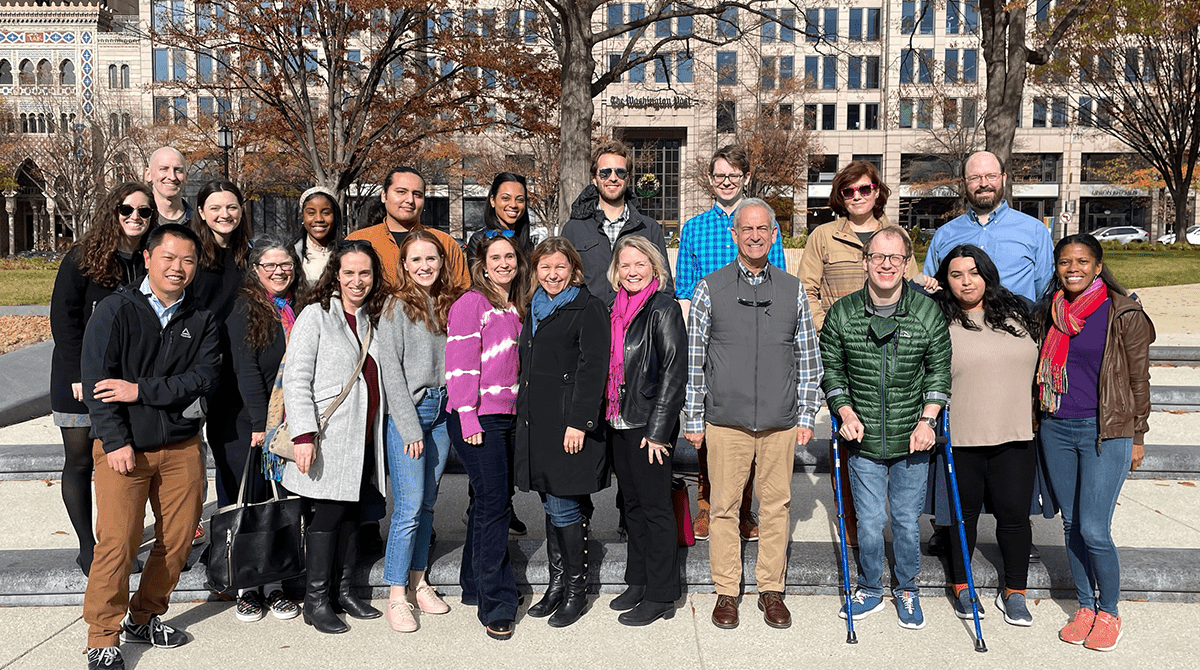
The ACS Network
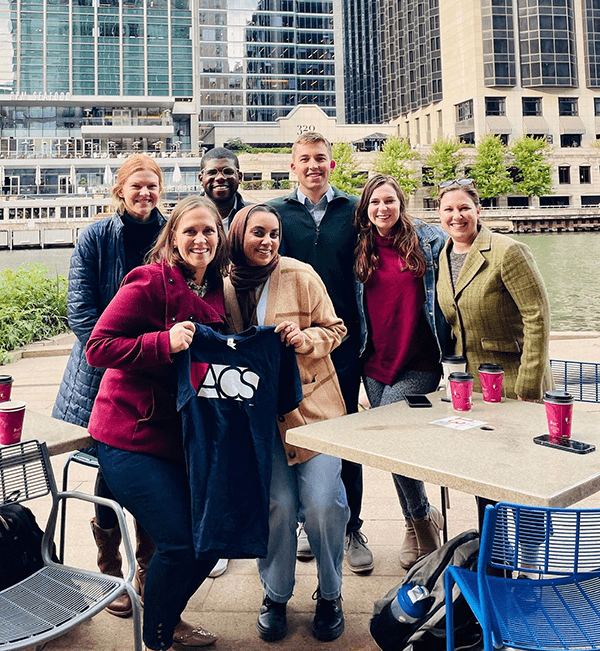
ACS's law student and lawyer chapter programs and activities are where ideas inspire action. Through our student chapters, law students gain a greater understanding of a vision of the law that centers human values and work towards making that vision a reality. Lawyer chapters draw in a wide swath of progressive lawyers, from new graduates to leading policymakers, to advance equity in the law both locally and nationally.
In 2021, across the country, the over 250 ACS Chapters focused on Supreme Court reform, racial justice, reproductive freedom and justice, voting rights, criminal justice reform, the death penalty, technology and privacy, immigrants’ rights, environmental justice, the importance of the judiciary, the power of local change featuring State AG staff and local/state officials, and strengthening the ACS student-lawyer network.
The 2021 Student Convention in March virtually drew in 447 registrants from nearly 90 different law schools. The 2021 Lawyer Leader Retreat in November included leaders from 26 different lawyer chapters.
Defending Judicial Independence and the Courts
 In 2021, ACS grew its Path to the Bench project to 53 working groups across 40 states, which identified, recruited, and supported hundreds of candidates for state and federal consideration reflective of the public the judiciary serves. Candidates represent racial, ethnic, gender, LGBTQIA+, and professional diversity. We also shared circuit court recommendations for 30 states plus the District of Columbia, Puerto Rico, the Court of International Trade, Court of Federal Claims, and the Federal Circuit, as well as district court recommendations for 35 states plus DC and Puerto Rico. This work was featured in articles for the New York Times, Bloomberg Law, The Wall Street Journal, The Atlantic, and most recently in The Guardian and our team has regularly appeared on news programs to discuss the importance of the judiciary.
In 2021, ACS grew its Path to the Bench project to 53 working groups across 40 states, which identified, recruited, and supported hundreds of candidates for state and federal consideration reflective of the public the judiciary serves. Candidates represent racial, ethnic, gender, LGBTQIA+, and professional diversity. We also shared circuit court recommendations for 30 states plus the District of Columbia, Puerto Rico, the Court of International Trade, Court of Federal Claims, and the Federal Circuit, as well as district court recommendations for 35 states plus DC and Puerto Rico. This work was featured in articles for the New York Times, Bloomberg Law, The Wall Street Journal, The Atlantic, and most recently in The Guardian and our team has regularly appeared on news programs to discuss the importance of the judiciary.
Judicial Nominations Tracker
ACS tracks the entire judicial nominations process, from vacancy to confirmation—essential information to keep advocates informed about the pace and impact of the current nominations process.
Diversity of the Federal Bench
In 2021, ACS implemented a new data tracker that monitors the gender and race diversity of the federal courts. Updated continuously, the tracker is a helpful resource to our network members, partners, and the media.
Supreme Court Reform
This past year, ACS called for structural and non-structural Supreme Court reform. ACS believes the Right’s packing of the Court has irreparably damaged the credibility of the institution and that the Court is now a direct threat to the guardrails of our democracy. Through robust public communications, programming, and direct advocacy, ACS is building momentum for the reforms necessary to restore the Supreme Court’s legitimacy and protect our constitutional rights. This includes adding seats as redress for the packing of the Court, ending life tenure in favor of term limit for justices, and restricting the use of the shadow docket.
At ACS’s annual Supreme Court Preview in the Fall, a panel of experts discussed this term’s docket, which only served to highlight the stakes. Cases like Dobbs v. Jackson Women’s Health Organization, the Mississippi challenge to Roe v. Wade, and New York State Rifle & Pistol Association Inc. v. Bruen, which will determine the constitutionality of a New York gun-control law, demonstrate the impact the Court will have on the lives of all Americans just this year.
Executive Pipeline
In the first year of a new administration, ACS mobilized its network to identify candidate pools for key federal government positions and provided educational resources on the presidential appointments process and the unique challenges facing the executive branch. Trainings and programs were held for thousands of interested leaders. For example, the “ACS Presidential Transition Series: Restocking the Federal Government” addressed the structural shifts to federal agencies during the previous administration, focusing on personnel challenges (including the lack of diversity in presidential appointments), ethical issues, related rule of law issues, and what the incoming administration can do to address these challenges.
During the year, hundreds were appointed because of this work in key positions. Last year, 211 individuals affiliated with ACS obtained federal appointments, five U.S. Attorney candidates recommended by ACS have been nominated for U.S. Attorney positions, and we have developed a talent database now containing 617 diverse lawyers from across the country. Finally, 16 members of our talent database obtained executive federal appointments.
Strengthening Democracy
Throughout the year, ACS convened its network and hosted programs to address threats to democracy. These included:
- “Filibustering Progress: To Reform or Not to Reform the Filibuster” - With the Senate so closely divided and a legislative agenda on democracy reform, labor rights, and the environment hanging in the balance, the debate over whether to eliminate the filibuster intensified. In response, ACS gathered a panel of experts to explore possible paths forward. ACS published an Issue Brief by top ACS network scholars, "Democratizing the Filibuster."
- “Insurrection at the Capitol: Where Do We Go From Here?” Through a legal lens, this event explored the various ways in which the January 6th violence at the Capitol was portrayed, the legal definitions of treason, insurrection, and sedition, the criminal penalties for each, and what can and should be done in response.
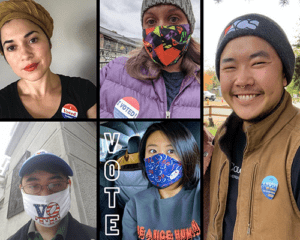 Protecting Voting Rights and Democratic Participation
Protecting Voting Rights and Democratic Participation
Even as the 2020 election cycles ended, we continued our focus on the calculated assault on voting rights occurring across the country. In response to the unprecedented turnout and turmoil following the election, state legislatures in Georgia, Utah, Iowa, Texas, Florida, and others moved to enact laws restricting access to the ballot box. We held an event titled “State of Play: Voter Suppression Bills in the Wake of the 2020 Election,” which examined how the For the People Act and the John Lewis Voting Rights Act may interact with the recent spate of voter suppressive state laws and the best path forward to protect voting rights. ACS staff and our 250 chapters mobilized to defend and promote access to voting, with much planning for 2021 and 2022 election cycles.
Race and the Constitution
We dedicated our 20th anniversary year programmatically to examining our nation’s “founding failures” and how the Constitution and our laws contribute to racial inequity in this country. Using our 2020 Program Guide, “Combatting Anti-Black Racism Through Law and Policy” as a framework, our first event in the series, “Reckoning with the Constitution” set the stage for discussing how our country’s founding document was encoded with white supremacy since its inception and the constitutional, legal, and policy reforms required to address the institutional racism that continues to infect our economic, legal, educational, and health systems.
The three events that followed, “The Consequences of the Constitution’s Original Sin for Our Criminal Legal System,” “Reckoning with our Constitution’s Generational Impacts on Health and Well- Being," and “How America’s Racial Caste System Has Limited Opportunities for People of Color” took a more granular look at how our country’s legal system has perpetuated racial inequality by overpolicing, over criminalizing, and over-incarcerating people of color since its inception, as well as how systemic racism has played out in environmental health, and economic opportunity.
Truth, Racial Healing, and Transformation
In 2021, ACS announced its support for a Truth, Racial Healing, and Transformation commission. Programming throughout the year highlighted the movement for Truth, Racial Healing, and Transformation, a series, Founding Failures, and a Constitution Day panel focused on our country’s broken commitments to Native Americans. The ACS Chapters throughout the country utilized the ACS 2021 Program Guide for their own programming and exploration and a student task force was formed to promote this movement on campuses, create programming and support activism.
State Attorneys General Project
Since 2017, ACS’s State Attorneys General (AG) Project has continued to grow in scope and impact. Through national and chapter programming, we continue to highlight the unique role state attorneys general play in our system of government, and opportunities for lawyers and law students to contribute to their work. ACS now works with more than 25 State AG offices nationwide. Through our State AG working groups, we coordinate meetings to allow AG staff to exchange best practices and ideas, and bring in experts from the ACS network and partner organizations to inform their work. Currently, we have State AG working groups in the topic areas of COVID-19, criminal justice reform, immigration, and a newly launched group focused on health equity.
Abolishing the Death Penalty
ACS has brought together a small group of advocates, activists, and legal scholars from within the death penalty abolition community to serve as an advisory panel to provide strategic assistance, guidance, and legal and policy analysis focused on death penalty abolition. ACS has also engaged key members of the presidential administration, the U.S. Department of Justice, and members of Congress in an effort to persuade President Biden to use his constitutional pardon power to issue a blanket commutation for all current federal death row inmates. These direct conversations have been accompanied by public statements, op-eds, virtual programming, and podcasts calling for the president to commute the federal death row, including a piece by ACS President Russ Feingold entitled “It’s Time to End the Federal Death Penalty and Empty Death Row” and a document designed for the administration entitled “Death Penalty: Determine If Capital Punishment Has Outlived Its Use.”
Addressing Legal Threats to Administrative Law and Solutions to a Broad Range of Protections
ACS amplifies the legal voices that seek to protect critical rights, demonstrate the practical impact of legal and policy decisions, and contrast regressive policies with a progressive vision of the Constitution and our laws. Our network of lawyers, law students, judges, scholars, policymakers, and activists represent a wide array of diversity in the field. By responding to critical needs at the federal, state and local levels, our network leads their communities in taking equitable action to safeguard our democracy.
At the federal level, ACS addressed the need for filibuster reform by highlighting the many ways that the filibuster undermines our democracy and stands in the way of progress. We published an Issue Brief laying out the argument for retaining the filibuster in a more democratic form. These were followed by a discussion at our national convention on "How to Save Our Democracy by Deconcentrating Wealth and Power," which also included a discussion of filibuster reform among other proposals.
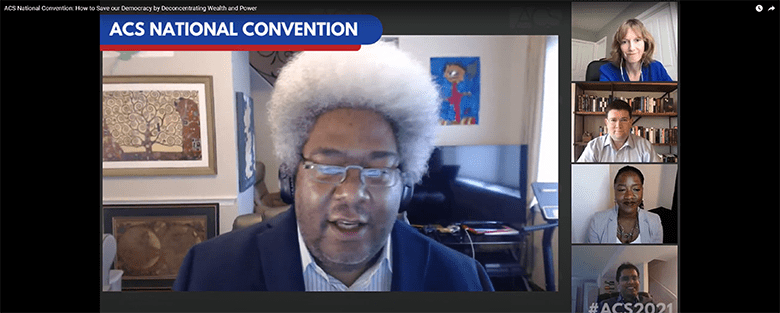
At the state level, ACS confronted legal threats to administrative law and solutions to a broad range of protections, including environmental regulation, labor law enforcement, consumer protection, corporate and government oversight. Several of our lawyer chapters hosted an event discussing the Texas power grid failure which featured energy regulation experts discussing these discriminatory aspects of grid and utility economics and what progressive advocates are doing to decarbonize the grid while protecting access to electricity for vulnerable households and individuals.
Locally, ACS chapters hosted numerous events on topics specific to their own communities such as fair housing, gig work, homelessness, and community policing. Ideas developed by our members, some of the legal profession’s most innovative thinkers, inspire and empower our network and supporters to advance a more just and vibrant future for all people.
Engaging the Public
ACS grew its communications reach in order to better engage the public on key issues, promote civic engagement, and expand our diverse and robust membership.
ACS in the News:
- "After Success in Seating Federal Judges, Biden Hits Resistance" -- The New York Times
- "Americans no longer have faith in the US supreme court. That has justices worried" -- Op-Ed by Russ Feingold in The Guardian.
- "How Democrats Lost the Courts" -- The Atlantic
- "How 9/11 Radically Expanded the Power of the U.S. Government" -- Time
- "Biden needs to act on growing anti-death penalty sentiments" -- Op-Ed by Russ Feingold in The Hill
- "Why I Opposed the Patriot Act" -- Op-Ed by Russ Feingold in The Nation
- "Former senator on a mission to change the way Supreme Court justices are selected" -- San Francisco Chronicle
Broken Law Podcast
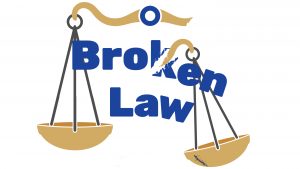 ACS is building organizational and strategic communications capacity to better inform the public about progressive legal thinking and ideas, to mobilize the progressive legal community around critical legal reforms, and to promote greater civic engagement overall among our members and the public. As a part of this effort, ACS has launched a podcast, “Broken Law,” which promotes discussion on how our laws and legal system serve the few at the expense of the many. Hosted by ACS staff, the podcast discusses the origins of our legal system, interviews those on the frontlines of the progressive legal movement and informs listeners about how we can reform our laws to restore our democratic legitimacy and improve the lives of all people.
ACS is building organizational and strategic communications capacity to better inform the public about progressive legal thinking and ideas, to mobilize the progressive legal community around critical legal reforms, and to promote greater civic engagement overall among our members and the public. As a part of this effort, ACS has launched a podcast, “Broken Law,” which promotes discussion on how our laws and legal system serve the few at the expense of the many. Hosted by ACS staff, the podcast discusses the origins of our legal system, interviews those on the frontlines of the progressive legal movement and informs listeners about how we can reform our laws to restore our democratic legitimacy and improve the lives of all people.
Constitution in the Classroom
ACS volunteer corps of law students and lawyers teach primary and secondary students about the U.S. Constitution. Last year, the program reached 45,000 students in largely low-income, underserved schools. The curriculum for 2021 focused on Brown v. Board of Education and the 14th Amendment.
ACS at a Glance



President Biden’s nominees are extraordinarily diverse in both legal background and ethnicity. The White House and liberal interest groups have been promoting public defenders and civil rights lawyers in addition to the more traditional choices of prosecutors and corporate lawyers. According to the White House, 47 of the 64 nominees are women and 41 of them identify as people of color, allowing the administration to record many firsts across the judiciary. “The diversity is really greater than anyone could have hoped for,” said Russ Feingold, a former senator and the head of the American Constitution Society, a progressive group that has been active in recommending nominees to the White House." New York Times, December 4, 2021.

Next Generation Leaders
Each year, ACS selects the next class of promising leaders from our student chapters across the country. The Next Generation Leader (NGL) program has grown from just a handful of law students to over 400 students and lawyers at all stages of their careers. In 2021, ACS provided individualized career advice to NGLs in law school as well as those in practice, helping to connect them to their fellow NGLs and other ACS members in their fields. Some NGLs also served on Path to the Bench working groups across the nation and ran for public office.

Too often, the voices of those who are most impacted by oppressive policies are left out of the decision-making process. – Zoraima Pelaez, Next Generation Leader and Student Board Member

I hope to build on the work of progressive scholars and advocates who seek to forge an inclusive vision of the U.S. Constitution. – Andrew Lindsay, Next Generation Leader

The law is an incredibly powerful tool for change and I see the Next Generation Leaders program as a resource to more successfully use that tool. – Emily Henderson, Next Generation Leader
Did You Know: The NGL program has grown to an alumni network of 403 since its introduction in 2007.
ACS 2021 Chapters Event Highlights
- The Minneapolis-St. Paul Lawyer Chapter hosted ACS' first in-person lawyer chapter fundraiser since 2020 in September 2021: The 2021 Minneapolis-St. Paul Progressive Law Benefit.
- ACS Georgia Lawyer Chapter hosted its first hybrid event in October 2021. They honored the Hon. Beverly B. Martin.
- The Florida Lawyer Chapters have grown significantly since 2019. During the summer of 2019, we only had one Florida Lawyer Chapter: the Tampa Lawyer Chapter. Today, we have four active Lawyer Chapters--Tampa, South Florida, North Florida, and Central Florida--with a Jacksonville Chapter in the works.
- The Northwestern Student Chapter hosted a series of events on Truth, Racial Healing and Transformation, starting with “Constitution Day: Truth, Racial Healing, and Transformation in the Constitution” featuring Sheila Bedi, Aziz Huq, and Paul Gowder in September 2021. In November 2021, the chapter explored the Evanston reparations program.
- The Texas Law Student Chapter coordinated a program responding to SB8 featuring state and national reproductive rights experts to discuss the current status and projected future of abortion rights, and how the students could get involved to defend reproductive justice.
- The Yale Student Chapter organized a series of conversations with state supreme court justices from 10 different states.
- The University of Missouri School of Law Student Chapter piloted a series, “Equity Under the Law,” to advance discussions about progressive policies and its potential to aid those who have been historically underserved by their government.

